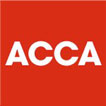Risk assessment and management
The main risks facing the firm are:
- Involvement of clients in:
- Tax evasion such as understatement of income, overstatement of expenses or claiming reliefs to which they are not entitled.
- Offences under the Fraud Act 2006, such as using false accounts to support an application for a loan.
- Offences under the Theft Act, such as clients deliberately refraining from notifying customers of overpayments.
- Offences under the Bribery Act 2010, such as making facilitation payments when working overseas.
- Failure to report suspicion or knowledge of such involvement to the firm’s MLRO by a principal, employee or sub-contractor of the firm.
- Deliberate facilitation of tax evasion by a client by a principal, employee or sub-contractor of the firm.
Whilst the likelihood of encountering instances of money laundering other than tax evasion or even terrorist financing may be minimal, principals, staff and sub-contractors must remain alert to such eventuality.
Principals, staff and sub-contractors must also be alert for complex or unusually large transactions and unusual patterns of transactions which have no apparent economic or visible lawful purpose.
Similarly, principals, staff and sub-contractors must identify situations where the client is using products and transactions which might favour anonymity (such as Panamanian companies), recognise the increased risk of money laundering or terrorist financing that these products and transactions produce, and take additional measures, where appropriate.
All know our client forms and customer due diligence forms should record the client’s risk profile.
Risk assessments will be undertaken and documented prior to any new business practices or technology updates being implemented.
Senior management approval should be obtained before establishing or continuing a business relationship with any high-risk clients.





